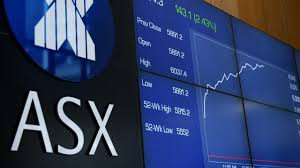Weekly market update - 13th of February 2020
Written and accurate as at: Feb 13, 2020 Current Stats & Facts

During the course of last week and despite the spread of coronavirus, the local market proved resilient and maintained value. The rate at which infection rates are developing – and whether it is slowing – is a key factor in gauging the scale and ultimate impact of the virus.
The near-term focus will be how China returns to work following the extended Lunar new year holiday. We will be keeping a close watch on this over the coming week. Manufacturing may start to ramp up faster than construction, as the latter relies more on migrant labour which may be impacted by travel restrictions. The market is working through the implications for commodity demand. There are also questions over the impact on regional and global supply chains, with stories emerging of auto plants halting production as they run short of components.
Data from the US provided a brighter counterpoint to concerns over China as monthly employment came in much stronger than expected. We believe the US economy remains in reasonable shape. This is important because the effects of any Chinese demand shock will take place against a US economy which has some momentum, rather than one hovering at stall speed.
US bonds continued to indicate improved economic confidence, with 10-year Treasury yields rising from 1.52% to 1.58%. Australian 10-year sovereigns rose from 0.95% to 1.05%.
The energy sector struggled in an eventful week. Oil Search (OSH, -11.6%) was the worst performer in the ASX 100 as the Papua New Guinean government walked away from negotiations with Exxon over the expansion of the PNG LNG development into the P’nyang field. OSH has a 29% stake in PNG LNG. The government seems determined to wring better terms from the consortium – although it’s probably not the best environment to create competitive tension given a soft LNG price and the fact that potential Chinese developers may be distracted by the coronavirus.
There is also the risk of a knock-on effect on the Papua LNG project, which plans to share some infrastructure with PNG LNG. On balance, we still think some sort of compromise deal remains likely, albeit delayed, which is a negative for OSH. That said, we see the intrinsic value of OSH’s assets as underpinning its stock price. We are also mindful that OSH’s share price is now at a lower ratio to Woodside Petroleum’s (WPL, -2.5%) than was the case when the latter last made a takeover bid in September 2015.
Beach Energy (BPT, -10.9%), Origin Energy (ORG, -5.6%) and Santos (STO, -5.2%) also fell as CNOOC, China’s largest buyer of LNG, declared force majeure. The company was unable to take delivery of some contracted LNG shipments due to the impact of coronavirus. Some are questioning whether this is an opportunistic move to take advantage of very low spot LNG prices. Regardless, there is a possibility this could see gas originally intended for export find its way into the Australian domestic east coast market, putting pressure on prices.
Treasury Wine Estates (TWE, -8.1%) continued to slide in the wake of its downgrade, although the focus is likely to have shifted from the woes of its US business to the potential impact on Chinese end demand. Chinese uncertainty also weighed on Fortescue Metals (FMG, -4.7%).
Growth and bond-sensitive stocks continued to outperform regardless of the rise in bond yields. This seeming dissonance was emphasised in the performance of Altium (ALU, +4.4%) a growth stock which has increased exposure to China and to the auto sector. Nevertheless, it was, along with Wisetech (WTC, +11.7%), one of the best performers for the week. Gold miners Northern Stare (NST, +6.8%) and Evolution (EVN, +1.6%) did well, although Newcrest (NCM, -1.8%) bucked the trend. Defensive yield stocks Sydney Airport (SYD, +2.9%) and Transurban (TCL, +2.4%) also outperformed. We remain mindful of the disconnection between the direction of bond yields and the performance of the bond sensitives, particularly coupled with the recent pressure on cyclical businesses. The sentiment is currently negative on China. Any improvement here could see a swift rotation in the market’s positioning.
Online property company REA Group (REA, +2.5%) has been among the first to report half-yearly results. The headline was disappointing, with sales down -6% and NPAT -13% versus the same half last year. This reflected a weak period for listings. Nevertheless, the stock was up, suggesting the market was not overly optimistic. Management says this half is off to a weak start given the effect of bushfires, although January is never a particularly strong month for listings. There is some talk of a pick-up in recent weeks.










